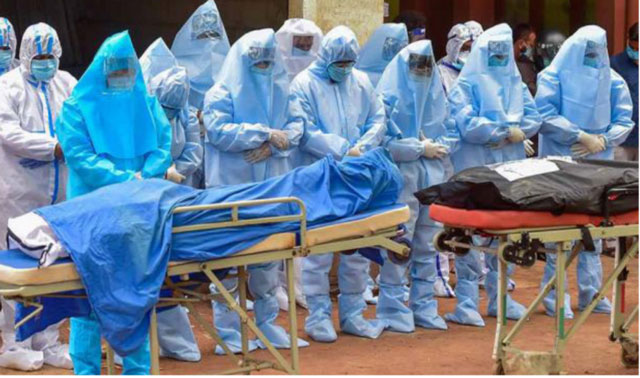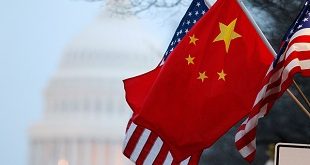
How our country has imposes draconian COVID-19 restrictions in spite of glaring evidence that they are not necessary
THE LAST WORD | ANDREW M. MWENDA | Very smart people can make humongous mistakes and stick to them for very long with little effort to change course in spite of glaring evidence of their folly. This is often driven by two things. First is the bandwagon effect i.e., uncritically following what has been prescribed without questioning its logic even in the face of overwhelming evidence to the contrary. Second is when powerful interests see an opportunity to profit from such wrong-headed policies. This toxic combination is manifest in the global response to COVID-19 but it attains tragicomic-proportions under the Uganda government.
Let me begin with the global response to COVID19 in order to avoid coming across as biased against our government. In any case, my own sister is a minister of state for Health and hence partly responsible for the continuation of our COVID-19 tragicomedy. This is especially painful because we have had almost two years of the pandemic and thus a rich experience from which to draw lessons.
Last year, I was one of the defenders of our response of shutting down the country. I have since grown to realise that while the initial response was excessive, it was understandable because COVID-19 was novel, the more reason to err on the side of caution.
Mainstream liberal media in America, I think in an effort to fight then President Donald Trump, made a fuss about countries that did not take extreme measures to contain the spread of COVID-19. Yet evidence on the efficacy of lockdowns is mixed. Most of the USA actually enforced a highly strict lockdown but has lost 2,305 persons per one million of the population. Brazil, where the president acted like Trump and his acolytes has lost 2,834 persons per one million. Many analysts use this as evidence of why leaders should support draconian lockdowns.
However, Sweden, which is considered a very prudent country with a responsible leadership, refused any shutdown. It has lost only 1,474 persons per one million population. The UK, which had a very tight lockdown has lost 2,062 per one million, France 1,799 and Italy 2,190. Why did Sweden without a lockdown perform much better than UK, France and Italy in loss of lives? Coming near home, Uganda has lost 67 per one million, Kenya 95, Rwanda 100, DRC 12, South Sudan 12, Tanzania 9 and Burundi 3.
Of course, the figures for DRC, South Sudan, Tanzania and Burundi may not be accurate, reflecting the lack of reliable numbers. But Rwanda had a much more effective lockdown enforcement than Uganda or Kenya but lost more people per one million. One could argue that this may be because Rwanda is the most densely populated country in Africa, allowing the disease to spread faster. But Nairobi city with 4.5 million residents is one third of Rwanda’s population and much more densely populated than Rwanda. Why didn’t we see more death there?
Besides, contrary to doomsday scenarios, African countries have not lost people on the scale predicted by the masters of this planet. This is not that we had tighter lockdowns or better healthcare. I think the main reasons are: Africa has a young population less likely to be killed by COVID-19, we have hard immunity given our poor living conditions, and people most at risk to die of COVID-19 (those with preexisting conditions) were already dead because of poor medical services. Therefore, while some degree of lockdown was necessary in the West (even though Sweden disproves this thesis), Africa didn’t need to go that extra mile.
With all this evidence, we should see the evolution of a better policy response. Yet Africa (and most of the world) is stuck with draconian measures that cause more harm than good. In fact, the global debate on COVID19 has shifted to vaccination. This may reflect the influence of Western factors and the pharmaceutical lobby than logic. Of the total population who may have gotten COVID-19, it is possible less than 0.5% died of the disease. Indeed, many of those who died were on the road to death anyway, with only a few months to live. This is especially so because the median age of those who have died of COVID-19 is 76 years. While I recognise the emotion attached to the death of even one person, international and national health policy cannot be based on emotions alone.
This brings me to Uganda’s current COVID-19 response; especially at Entebbe International Airport. Every visitor is required to have a negative COVID-19 PCR test at least 72 hours before landing, then test upon arrival before being allowed to enter the country. I think it is the most thoughtless public policy action in this story of thoughtless public policies. And I am not exaggerating.
First, because of COVID-19, only 32% of people who come into Uganda enter through the airport. The other 68% enter by land through borders where they are not required to do a second PCR test. More importantly, residents of border areas, who form the largest number of visitors, are not required to even have a COVID-19 test.
Now note that airports worldwide have the tightest enforcement of COVID-19 rules. To travel by air, one has to do a PCR test which must be negative at a maximum of 72 hours before departure. Therefore, by the time someone lands at Entebbe, they have a 99% chance of being COVID-19 negative and an 80% chance of having been vaccinated. In fact, only 23 out of 6,200 people (0.37%) landing at Entebbe in the last few days have tested COVID-19 positive. Yet it is at this point of least risk that we have imposed the most draconian rules and resources to contain COVID19. Does it make sense?
Away from the airport, Uganda has imposed COVID-19 rules that have kept children out of school for two years, destroying entire sectors of the economy that support education. It has enforced a curfew and closed bars and other places of entertainment with massive loss of jobs and livelihoods. It is difficult to accurately calculate the social and even medical effects of economic destitution but they must far exceed any loses suffered from COVID-19 directly. Besides there is no evidence that our neighbors Burundi, DRC and South Sudan who did not impose these draconian have suffered massive illnesses and deaths to justify our lockdowns. Yet in spite of this evidence, we continue to harm ourselves. What has gone wrong?
****
 The Independent Uganda: You get the Truth we Pay the Price
The Independent Uganda: You get the Truth we Pay the Price




It’s true that lockdowns imposed by the Ugandan government have reaped nothing. Instead they have benefited the regime through COVID-19 Pandemic donations. Our children have lost track of education at expenses for those being coached in cities against rural children.
Covid- What a shame on our generation!
1.M7 really outdid himself with his brilliant measures he put in place to contain the spread of COVID 19. I cried when the Medical team from the army was deployed to manage the spread of COVID 19 it reminded me of Trump being admitted at Walter Reed Hospital which is a Military Hospital.
2. COVID is a contagious disease anyone can easily get affected however careful one may be.In Uganda its quite awkward that the rich,affluent were the ones who got infected yet the reckless ones like boda riders,market vendors,drunkards were spared may be thats why some Ugandans feel the lock down was exaggerated.
3. Its during this COVID times that Ugandans are awed with the brilliant silent M7 Team that works with in the background to keep the country in piece.
4.No one ever predicted the severity of the disease it would have gone either way in Uganda.
5.For us with VIP stickers we enjoyed the smooth rides in the city during the lock down.
6.But the Swedish,Rwandans,South Sudanese,Congolese and Burundians,Tanzanians are a group of people whose Nations are not so exposed Socially and people rarely travel to their nations .Actually in Africa its Kenya,Uganda,South Africa that had stringent lockdown measures because their people are big headed and their airports are busy.